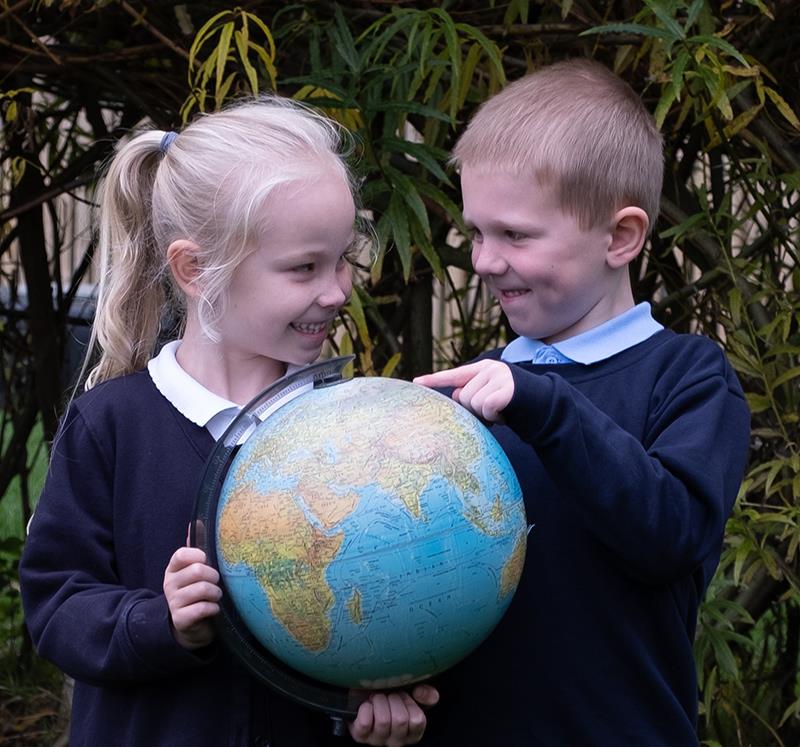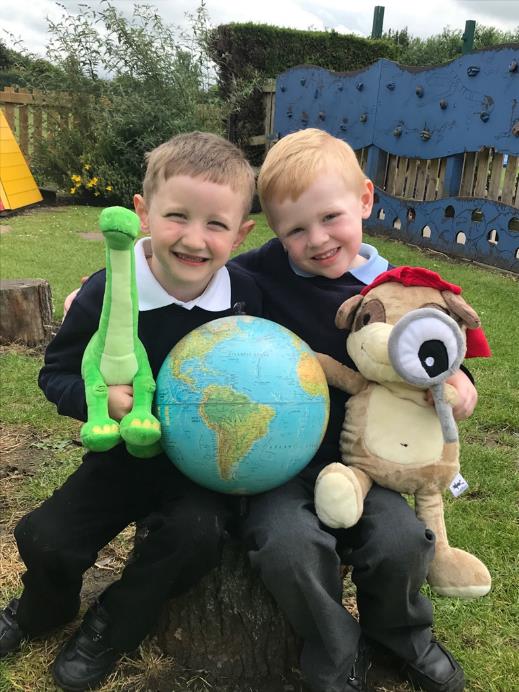“Society is facing the biggest global challenge of our time.” Greta Thunberg, climate campaigner
The words of Greta Thunberg have resonated across the world. With rising temperatures, volatile weather patterns and huge climate-related changes being seen across the planet, how are our children and schools (and teachers) responding?
The scientific community – not least the reports of the Intergovernmental Panel on Climate Change – has warned that if greenhouse gas emissions keep increasing, the planet will reach a point of no return. Global warming will become catastrophic and irreversible.
Greta Thunberg is the teenage campaigner who helped to kick-start the global protests led by young people and others calling for governments to act. These young campaigners have been holding “school strikes” for climate change – also know as “Fridays for Future” days. They want change – immediate action to help protect our planet and save their futures. Such drive in ones so young is commendable, but these young people are also showing that they can drive the education they need in order to make a difference.
They are shouting loud, not only to our leading decision-makers but also to those responsible for educating them. Our young people are hungry for the knowledge that will help them to change the world.
A role for schools (and teachers)
There are a growing number of teachers, myself included, who believe it is vital that we put climate change on the curriculum for all children from the early years through to secondary education. If we educate our children well about the facts of climate change, and their roles and responsibilities, we can enable them to lead the way for change.
These specialist climate change teachers are growing in number – all accredited by EduCCate Global, a not-for-profit organisation set up by Harwood Education and the United Nations Institute for Training and Research (UNITAR). These teachers can access learning resources and teacher training from UNCCLearn, the UN’s Climate Change Learn Programme, to equip them with climate change and environmental knowledge, accessible via the EduCCate Global website.
The initiative started in April and in only a few months has recruited around 27,000 educators in the UK. Around the world, more than 250,000 have signed up. Once teachers have signed up online, they complete five UNITAR climate change training modules. The course takes approximately 25 hours and is free. Once teachers achieve the accreditation they are invited onto the EduCCate Global Social Platform, allowing them to share teaching resources and communicate with other accredited teachers.
Climate change and the curriculum
Opportunities do already exist to teach climate change. The national curriculum teaches climate change across a number of subjects (for example, geography at key stage 3 includes “the study of weather and climate, and why they vary from place to place”). However, this new wave of teachers believes that learning about climate change needs to be detailed and integrated across all key stages in a cross-curricular way.
Our school has been working on the climate change agenda for more than two years and this year we pledged to upgrade our commitment to a climate change curriculum, while also reviewing our actions across the school. Climate change learning and global citizenship has now been integrated into all topics across all year groups.
We are an infant and nursery school with pupils aged three to seven. We understand that these are quite big concepts for very young children and so our staff felt it was important for us as early years and key stage 1 educators to ensure that this message was translated into words and actions that the pupils could relate to. We also wanted the climate change work to build on our International Schools Award, which was awarded for the second time by the British Council in 2018.
One of our early activities, in the autumn term of 2018, saw pupils in key stage 1 create a postcard explaining how they could help to lower the world’s temperature. Some children promised to use fewer resources (like water and electricity), some promised to walk or scooter to school, and some promised to do some planting. These commitments came about after undertaking a number of simple beginner climate change sessions that allowed the children to gain a basic understanding of the concepts.
The pupils sent their postcards to Switzerland as part of a Guinness world record attempt – the biggest number of postcards strung together in a single image. A collage of 125,000 drawings and messages from children across the world was rolled out on a shrinking Swiss glacier in November 2018, beating the world record.
In late autumn 2018, we then began work to develop a Curriculum Week. This gave our staff the opportunity to work on new curriculum content and allowed us the time to work on getting the tone right for our pupils. We took inspiration from the book I Can Save the Earth by Alison Inches and Viviana Garofoli (Little Simon, 2008) and our work culminated in spring this year with pupils spending a week learning about how they could help to “Save the Earth”.
The Curriculum Week gave us the beginnings of our climate change curriculum, which was rolled out across the whole school in September, including clear learning intentions for every year group as part of the school’s updated curriculum vision. To support this work, in September, as part of our CPD plan, all our staff agreed to undertake the climate change teacher training. This was not management mandate – all school staff voted to make this commitment.


The world is in our hands: Climate change is a cross-curricular subject for pupils at Bolsover Infant and Nursery School
Examples of some climate change activities
Both key stages have been eager to identify when they will talk about climate change and global warming in the wider curriculum.
Community visit: As part of a session on their local environment and mapping, pupils planned a visit to our local community to look at and report on landmarks and other features. While out and about, pupils looked at such things as trees, traffic, washing lines and solar panels, and on their return related all of these things back to their climate change learning. The children explored how trees help tackle global warming, how traffic adds to the problem of carbon emissions, how using a washing line instead of other drying methods can reduce the use of electricity, and how solar panels are an example of renewable energy.
The weather: Our year 1 children have been looking at the changes to weather, temperature and environment through the seasons. They have related this to a discussion around “what is climate?” and how some climates have changed over time due to global warming. They have also learned about woodland environments and how climate change affects animals and habitats.
Learning heroes: We use learning heroes in our teaching and we have two exciting characters called Explore-asaurus and Detective Dom. These characters introduce our children to the concept of exploring the world around them and learning investigative skills. They help us to talk about how the world has changed over time and what might happen in the future.
Polo: We have introduced our children to a new learning hero. Polo is a polar bear created by author Alan J Hesse (The Adventure of Polo the Bear, Millgate House, 2019). Another of our learning heroes is Mr Bewilder, a brown bear, who helps us learn about the world, to ask questions and be curious. Mr Bewilder was visited by his cousin Polo, who helped the children to begin to understand some of the global implications of climate change and who left the pupils with a present – a classroom recycling bin.
Milly the Dinosaur: In September, pupils met Milly the Dinosaur (from The Education Group’s Dinosaur Day). Milly is an animatronic dinosaur who helps them to think about how animals may become extinct through their inability to adapt to a changing world. This allowed the children to consider how they can start to adapt in response to some of the issues we are raising. The response from children and parents was really supportive.
Taking small steps: As a result of the curriculum, children now realise that they can easily help by making very simple changes. Children understand why they need to reduce their plastic use, why they need to use their recycling bin at home and school, and how by making simple choices they can make a difference and make their voices heard.
Climate change teachers
As the first teacher and head in Derbyshire to gain the climate change accreditation, my concern was that once trained these teachers would be working alone, often without management commitment. System leadership has a role to play if we are to prevent our newly accredited climate change teachers from working in isolation.
To this end, EduCCate Global has joined forces with Derbyshire Teaching Schools Together to trial the creation of the world’s first UN accredited citizenship/climate change system leaders. These will be Specialist Leaders in Education (SLEs) and Local Leaders in Education (LLEs) who have already achieved the accreditation. This exciting step has been made in conjunction with EduCCate Global, UNITAR and UNCCLearn and will see system leaders deployed across an area to help and support accredited climate change teachers on the ground. We want to build a network of teachers across the country to share support, guidance and leadership skills and we hope that this will prevent accredited teachers from becoming voices in the wilderness.
Finally, to the critics...
We have been lucky to have our parents behind us and have received a lot of support and inspiration from our community. However, climate change sceptics are out there and some of my colleagues have already encountered this. To those who encounter people and groups who wish to deny the impact of humans on the climate I would say this – stick to the facts and use your training. By calmly basing our response on facts, scientific evidence and research we give the sceptics no opportunity to gain traction.
There are also critics who say that talking to young children about the climate crisis could be harmful to their wellbeing and mental health. We have not had this experience – we have only seen children becoming empowered and keen to learn about the problem and what they can do. We always ensure the message is positive and leaves children feeling energised.
Climate change is not going away. There is no point blindly continuing to teach our children without addressing the single biggest issue they will face in their lifetimes. Without giving pupils the knowledge and skills to effect change, how can we possibly say we are preparing them for a better future?
- Fiona Cowan is headteacher at Bolsover Infant and Nursery School in Derbyshire and an EduCCate Global UN-accredited climate change teacher.
Further information & resources
- Teachers who are interested in undertaking the climate change teacher training from EduCCate Global should visit www.eduCCateglobal.org
- UN Climate Change Learning Partnership: www.unccelearn.org/educcate
- If UN-accredited climate change teachers wish to become SLEs or LLEs, visit www.dtst.co.uk/climate-change-leadership.html
- Intergovernmental Panel on Climate Change: www.ipcc.ch
- Fridays for Future: www.fridaysforfuture.org
- Dinosaur Day: www.educationgroup.co.uk/events/dinosaur-day
